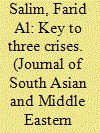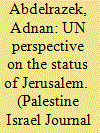| Srl | Item |
| 1 |
ID:
124650


|
|
|
|
|
| Publication |
2013.
|
| Summary/Abstract |
The United States is now in a period of austerity, and after years of huge increases, the defense budget is set to be scaled back. Even those supporting the cuts stress the need to avoid the supposedly awful consequences of past retrenchments. "We have to remember the lessons of history," President Barack Obama said in January 2012. "We can't afford to repeat the mistakes that have been made in the past -- after World War II, after Vietnam -- when our military policy was left ill prepared for the future. As commander in chief, I will not let that happen again." Similarly, then Secretary of Defense Leon Panetta told Congress in October 2011, "After every major conflict -- World War I, World War II, Korea, Vietnam, the fall of the Soviet Union -- what happened was that we ultimately hollowed out the force. Whatever we do in confronting the challenges we face now on the fiscal side, we must not make that mistake."
|
|
|
|
|
|
|
|
|
|
|
|
|
|
|
|
| 2 |
ID:
124255


|
|
|
|
|
| Publication |
2013.
|
| Summary/Abstract |
Palestine occupied an exceptional place in German strategic thinking long before Hitler's rise to power, indeed before his birth. Ashkenazi Jews from Germany and Poland established a small religious community in Jerusalem around 1800. They lived in abject poverty, supported by contributions from fellow Jews in Europe, and devoted all of their time to religious study.
|
|
|
|
|
|
|
|
|
|
|
|
|
|
|
|
| 3 |
ID:
126899


|
|
|
|
|
| Publication |
2011.
|
| Summary/Abstract |
Palestine was a province of the Ottoman Empire for 400 years. With the empire's collapse as a result of World War I, the League of Nations placed Palestine under a mandate which it assigned to the United Kingdom. The British Mandate of Palestine, which was confirmed in 1922, put into effect the Balfour Declaration of 1917 whose principal objective was "the establishment in Palestine of a national home for the Jewish people." The terms of the mandate, which favored an increase in Jewish immigration to Palestine, were opposed by the Arabs, as it aroused growing fears of a Jewish takeover in Jerusalem and elsewhere in the country. This produced great tension between Arabs and Jews, particularly in Jerusalem and specifically around al-Aqsa Mosque and al-Buraq (the Western Wall).
|
|
|
|
|
|
|
|
|
|
|
|
|
|
|
|